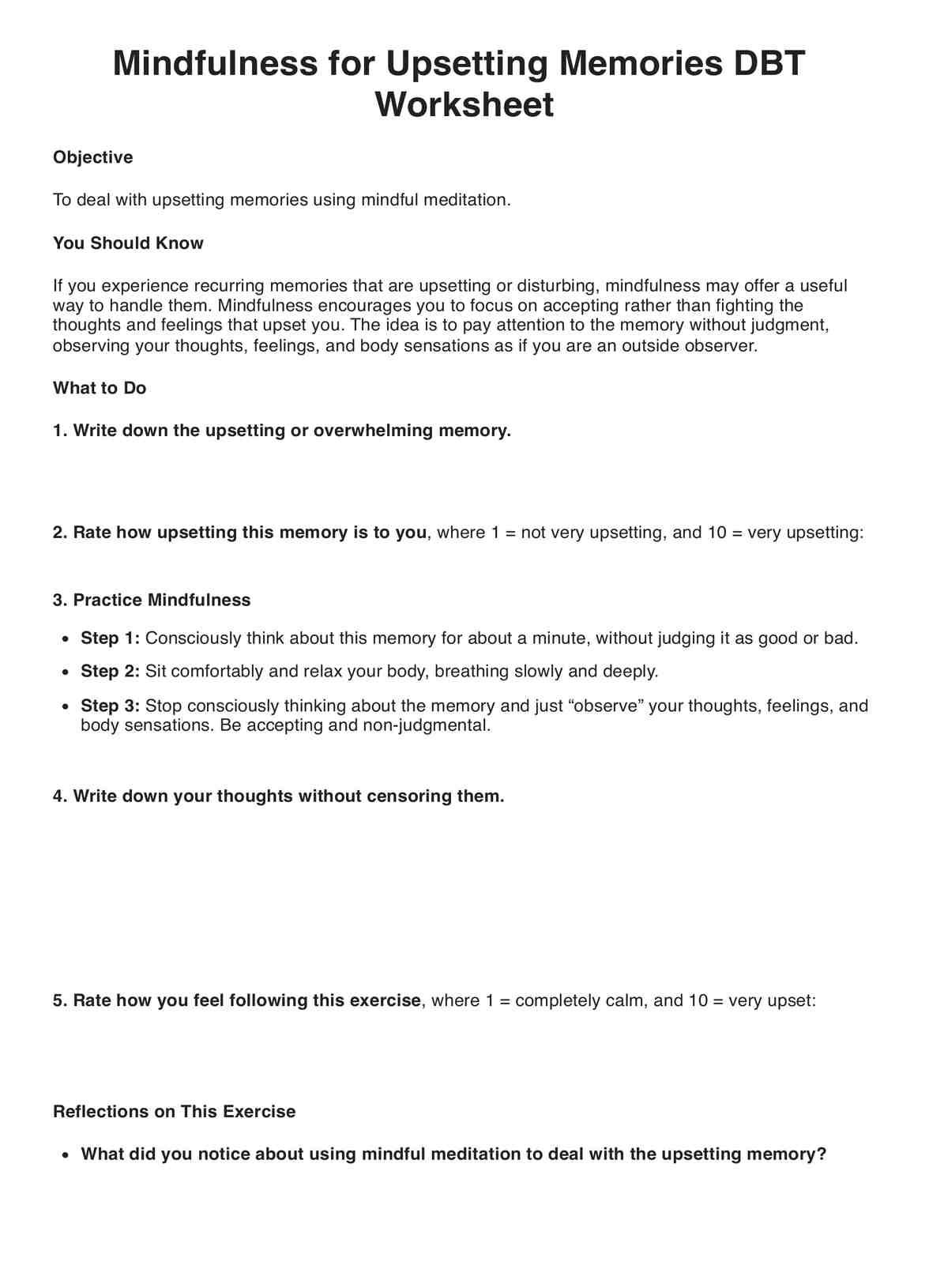The time can vary depending on the individual, but typically, it can take 30 minutes to an hour.

Mindfulness for Upsetting Memories DBT Worksheet
Explore the Mindfulness for Upsetting Memories DBT Worksheet—a simple tool to manage distressing memories and improve mental peace. Start your journey today!
Use Template
Mindfulness for Upsetting Memories DBT Worksheet Template
Commonly asked questions
The worksheet can help people apply mindfulness techniques to distressing memories, promoting acceptance and improved emotional regulation.
This worksheet is best used when a person struggles with distressing memories, causing emotional discomfort or distress.
EHR and practice management software
Get started for free
*No credit card required
Free
$0/usd
Unlimited clients
Telehealth
1GB of storage
Client portal text
Automated billing and online payments











